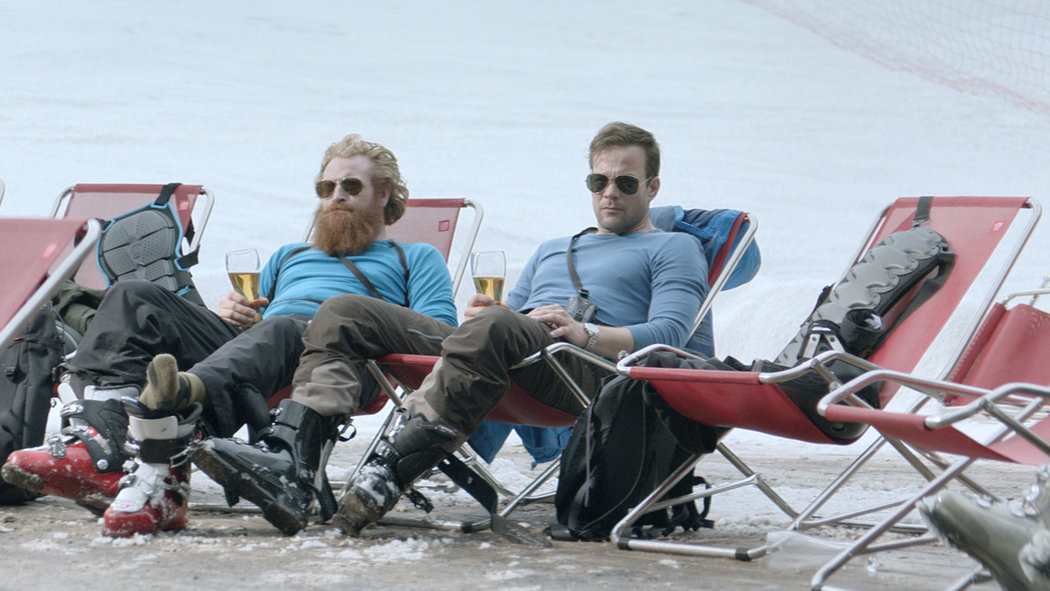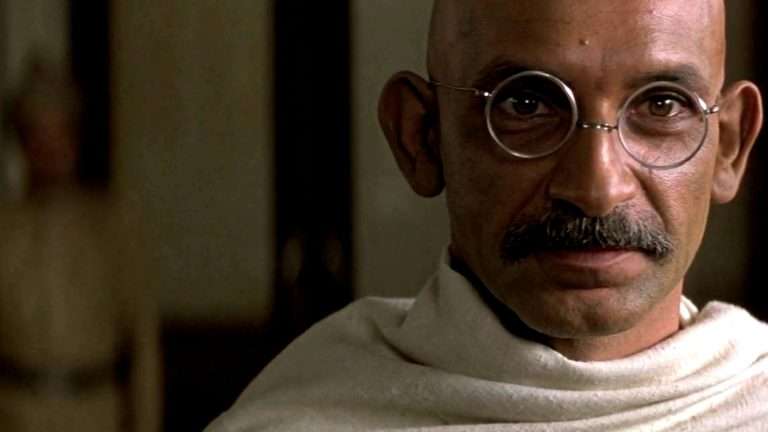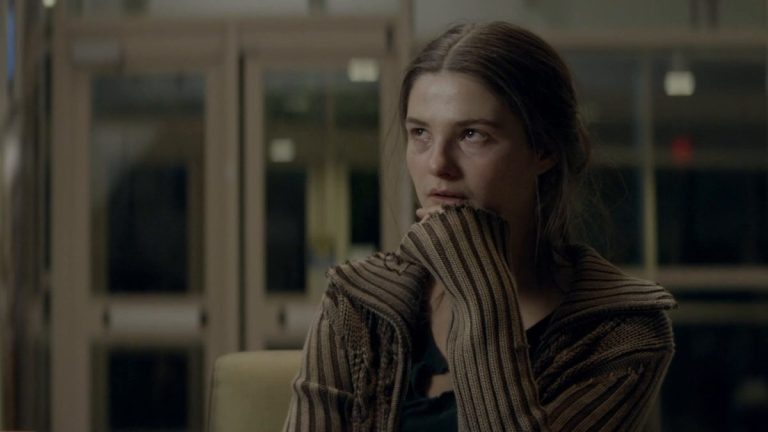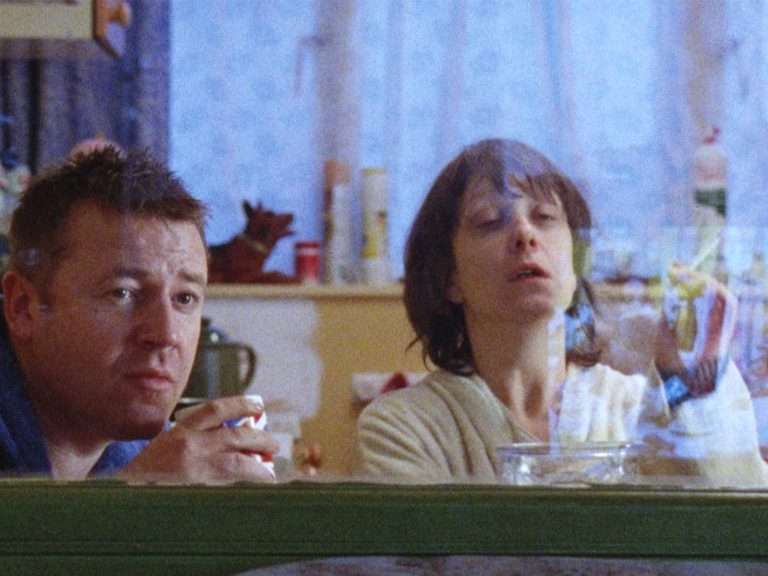Ruben Östlund’s “Force Majeure” (“Turist”) is like a slow-motion avalanche in your stomach. Before you know it, you’re under it. This is the movie where Östlund perfected his unique style, paving the way for his subsequent wins of two Palme d’Or honors for “The Square” and “Triangle of Sadness.” He built an entire movie around a “micro-emotion,” or that fleeting instinct we would ignore. “Force Majeure” is subtly devastating because it turns a single, careless moment of “fight or flight” into a profound analysis of marriage, masculinity, and the hypocrisies that permeate our society.
For what should be an idyllic family getaway, Swedish architect Thomas (played by Johannes Bah Kuhnke), his wife Ebba (played by Lisa Loven Kongsli), and their two young children gather at a posh ski resort in the French Alps. In front of another traveler staying at the same hotel, Ebba quietly raises the first hint that Thomas might not be the perfect “family man.”
It’s a casual comment that most couples make without much thought. But was it really that important? Obviously, yes, because it was the first dialogue of the film. The moment sets the tone for everything that follows. It plants the seed for the film’s entire emotional dynamic and immediately tells us what kind of relationship we’re dealing with. Then comes lunch on an outdoor terrace.
A controlled avalanche rushes in their direction. The incident seems so threatening that the guests flee the place, including Thomas, who grabs his phone and runs, leaving Ebba and their children in the restaurant.. Fortunately, nobody is harmed. Something cracks there, small but impossible to ignore, and the rest of the film watches that crack widen as both of them keep skirting around what really happened.
Making us feel like an intruder (or an unwelcome viewer) in a private collapse is Östlund’s finest talent here. As this marriage falls apart, we are confined to hotel rooms and dining tables, witnessing every awkward silence and every unsuccessful attempt at reconciliation. Where most directors would use score or quick cuts to manage tension, Östlund does the opposite. He holds the shot. Wide, uncut angles and minimal music. Thomas and Ebba’s attempt (and failure) at communication is just raw discomfort.
This emptiness is further reinforced by the visual language of the movie. The sterile hotel surroundings, washed-out hues, and negative space-filled frames all shout about how dry their relationship is. Even the other resort visitors become mirrors of us as real strangers stray into the couple’s most private moments. This also applies to the hotel staff member who constantly interrupts them when they are most vulnerable. We witness it the way the bystanders do, particularly when Thomas is exposed in front of his friends. There’s no looking away—we’re trapped in it with them.
Östlund’s later work is different in this regard. Through chaos and spectacle, “The Square” and “Triangle of Sadness” intensify awkwardness. For some reason, it’s worse when “Force Majeure” lets it simmer in silence. The uncertainty of someone who can’t accept their marriage as it is, yet refuses to let it fail, is captured in Lisa Loven Kongsli’s Ebba, something that most movies overlook.
She doesn’t hide her emotions. She keeps bringing up the avalanche because she wants Thomas to recognize what she witnessed. However, Östlund does not spare her. She locks the children in the hotel room because she is so intent on addressing Thomas about her thoughts. She doesn’t hear the children when they scream that someone is in the room. The movie subtly poses the question, “Who’s really abandoning whom here?”

Thomas (Johannes Bah Kuhnke) balances his desire for inner peace with his job as “man of the house.” He avoids Ebba’s intense contemplation, but the journey makes him consider his manhood. Sometimes he gets away with vacation jokes, but other times accusations ensnare him and rob him of all composure. Unlike Ebba, whose inner world is revealed more sharply, his inner world remains hidden until the halfway mark. Then, in front of friends, she confronts him with video evidence of his “failure” as a father and a man.
He will always carry the burden of his crumbling self-esteem and shattered family-protector beliefs due to societal expectations. Vulnerability overwhelms us, captivating us. How would we handle that chaos? Our instincts may mimic his avalanche bolt, justifying it, and all of a sudden, we’re confronted with the disconnect between our true selves and the hero we pretend to be for others, even family. That’s the beginning of Thomas’s real descent.
Östlund built his reputation spotting micro-emotions others miss, the bill-paying standoff in “Triangle of Sadness”, the post-sex condom argument in “The Square”. “Force Majeure” condenses a whole movie into one: that avalanche flinch, scrutinized from every perspective until Thomas is no longer judged. We are evaluating ourselves.
The movie explores broader ideas without explicitly stating them, especially the myth of protection and masculinity. Even in the closest relationships, betrayal breeds skepticism. Marriages break down due to obstinate refusal to compromise rather than dramatic blowouts. Östlund also manipulates gender norms. If Ebba had run instead, would this movie have been made? Would her “failure” be viewed differently, possibly more harshly, or would it lead to the same discussion? The movie provokes thought but doesn’t provide a solution.
Thomas receives his atonement. After finding Ebba wandering in the snow, he drags her back to safety and at last assumes the role of protector. The distance appears to narrow. Then Östlund uses his trademark cunning humor to turn it around. The driver loses control as the bus descends the mountain. Thomas and the children are left behind while Ebba flees in a panic. Thomas simply chuckles, ends the show, and starts smoking the cigarettes he had given up.
We are all performing, and the entire movie makes sense. We evaluate people based on criteria that we would quickly forsake. Moral righteousness, gender norms, and social expectations are all theatrical until we are put to the test.
“Force Majeure” is leaner than Östlund’s later, flashier work, but it cuts deeper. It’s uncomfortable in the best way, not through violence or shock, but through recognition. The pacing drags in spots, and some might find the repetitive arguments exhausting, but that’s partly the point. This is what it feels like when a relationship starts eating itself.
Östlund asks a simple question: are we the people we pretend to be, especially to those we love? “Force Majeure” suggests we’re not, and we’re hypocrites for judging others when we’d likely fail the same test. It’s a bitter pill, served cold in a luxury resort where even the snow looks fake. Overall, “Force Majeure” is essential viewing for anyone interested in honest filmmaking that doesn’t flinch.







